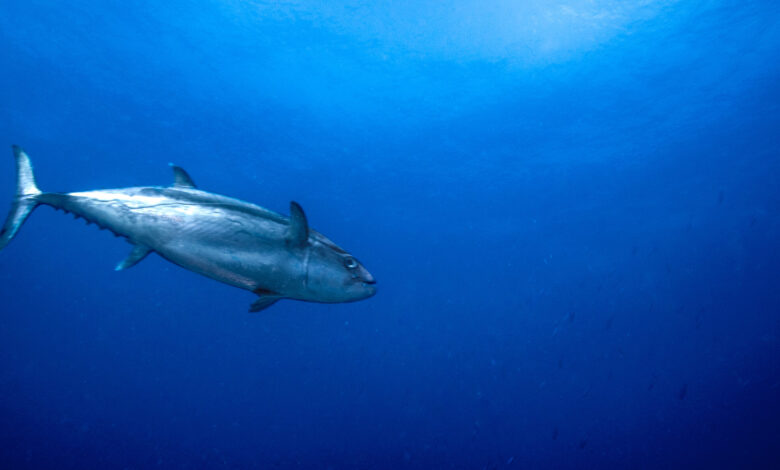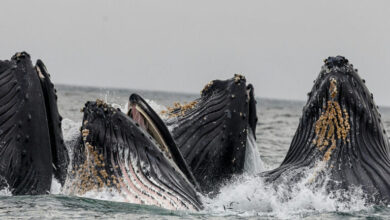
Skipjack Tuna (Katsuwonus pelamis) in the blue water, Seychelles, Indian Ocean. Photo Credit: Massimiliano Finzi/Getty Images
AnimalsEnvironment Indian Ocean…And So We Agree: No More Overfishing!
An agreement has been reached between coastal nations restricting fishing vessels from using harmful devices in the Indian Ocean that lead to overfishing, a big win for tuna populations and all forms of marine life.
“This landmark decision has been three years in the making and is a giant step forward for the conservation of tuna stocks in the Indian Ocean,” explains Jess Rattle, head of investigations at Blue Marine Foundation. “In the face of immense pressure and opposition from powerful actors from the European Union, the 11 coastal states and the other supporters of the drifting FAD measure showed true leadership and dedication to protecting the Indian Ocean’s tuna stocks and the countless coastal communities that depend on them.”
The proposal to reduce the number of free-floating or “drifting” fish aggregating devices (FADs) was put forward at the last minute by Indonesia and 10 other coastal nations and adopted by a two-thirds majority. FADs are greatly detrimental to endangered turtles, sharks, and marine mammals because they are often caught. The measures agreed upon – and to be enforced by 1 January 2024 by all members of the Indian Ocean Tuna Commission – include a phased reduction of the number of drifting FADs for each vessel, a mandatory FAD register, and a 72-day period where FADs are banned. The population of Indian Ocean yellowfin tuna is especially hit by overfishing because 97% of the specimen caught are juveniles.



